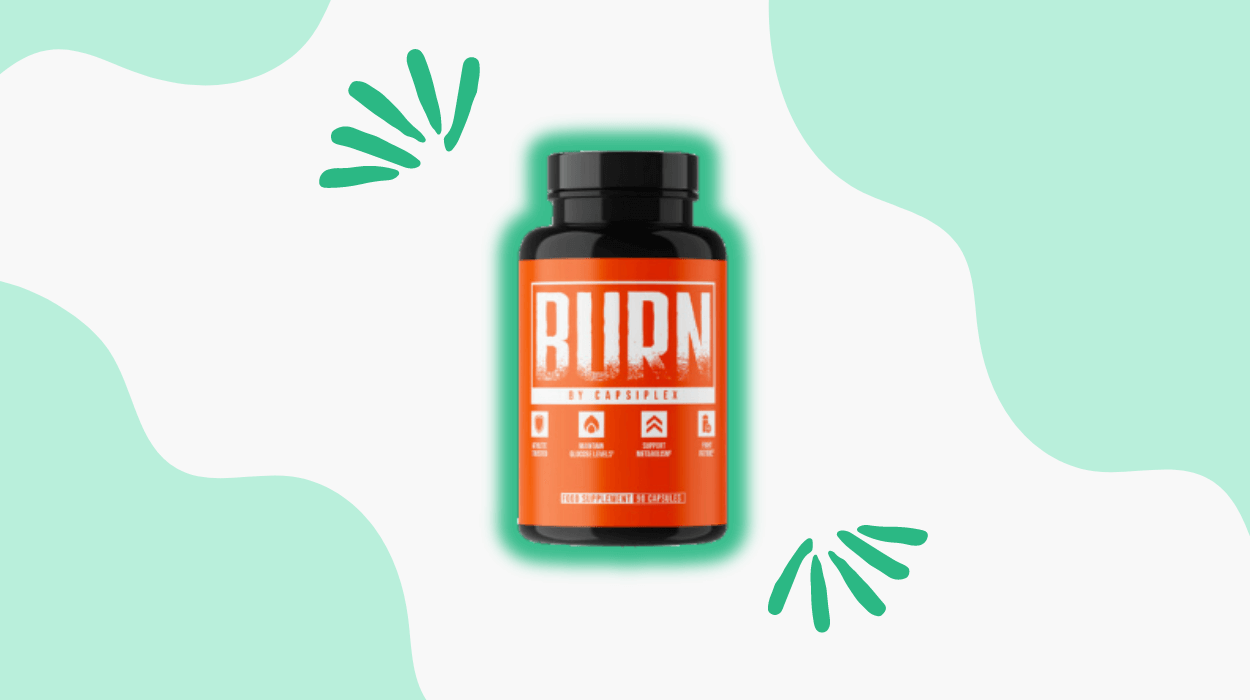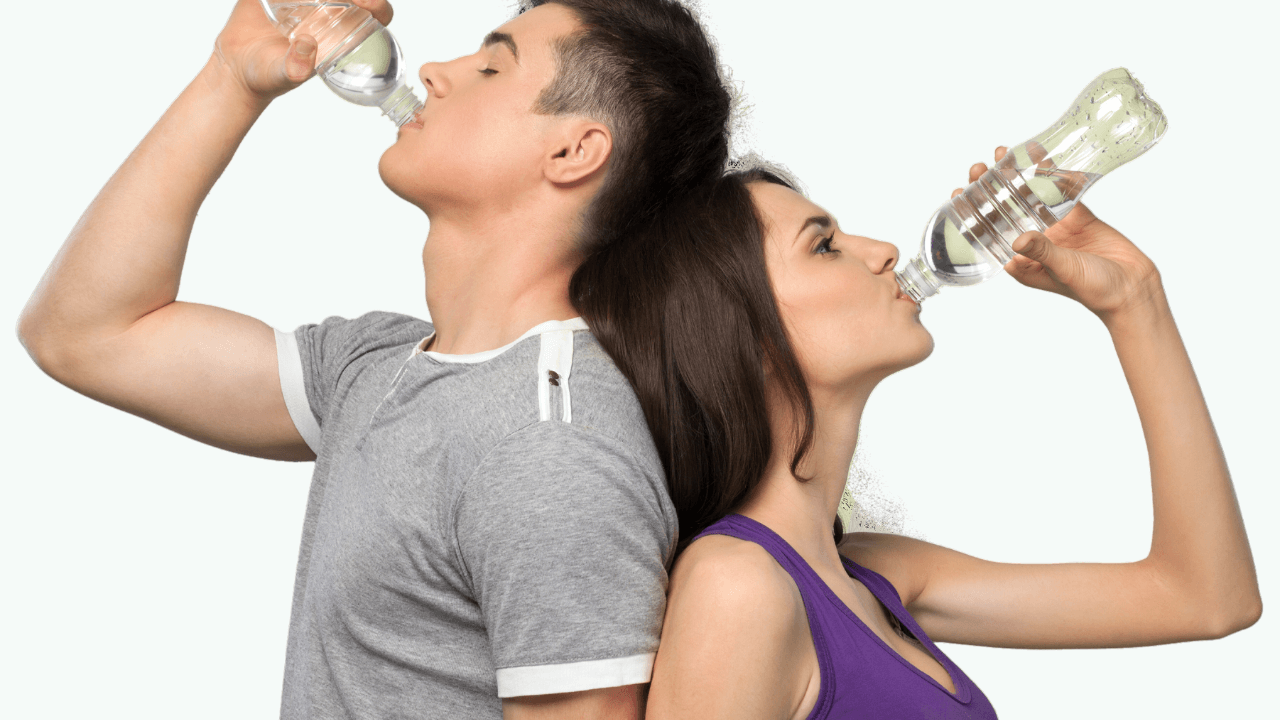

When it comes to dropping pounds, you may not realize how crucial drinking plenty of water is, even though it seriously affects your health.
You’re probably thinking about changing your diet and hitting the gym more. However, pay attention to the importance of water in your weight loss journey.
It’s vital for keeping your body in good shape and helping you shed those extra pounds and keep them off.
In this article, I’ll explain the science behind water intake and how it relates to losing weight. I’ll also provide practical tips to help you determine the perfect amount of water to drink daily for effective weight management.
 Effects of Drinking Water on Your Weight
Effects of Drinking Water on Your WeightDrinking water may act as a natural appetite suppressant, filling your stomach and making you feel fuller quickly. This could prevent unnecessary snacking and reduce overall calorie intake. Choosing water over high-calorie drinks like lattes, juices, sodas, and milky drinks might significantly lower your daily calorie intake.
| Benefits of Drinking Water for Weight Loss | How Water Aids in Burning Calories | Water and Exercise Success |
|---|---|---|
| Water serves as a natural appetite suppressant | Resting energy expenditure is boosted by drinking water, leading to more calorie burn | Proper hydration helps joints, muscles, and connective tissues function smoothly |
| Drinking water fills a greater space in the stomach, making you feel fuller quickly | Drinking 500ml of ice-cold water increases metabolic rate and burns more calories | Regular water consumption improves heart and lung function, leading to better exercise performance |
| Most people confuse thirst with hunger, so drinking water can prevent unnecessary snacking | Cold water lowers body temperature, causing the body to work harder and burn more calories | Being properly hydrated reduces the chances of cramps and pain during workouts |
| Water can help reduce liquid calorie intake from high-calorie drinks | Drinking water, regardless of temperature, revs up metabolism and aids in weight loss | Hydration allows for uninterrupted workouts, leading to more productive sessions and increased calorie burn |
Increasing your water intake could have a big impact on burning calories and breaking down fat, which are key for losing weight.
Research shows that drinking enough water is crucial for lipolysis, where your body burns fat. Water mixes with fats to create fatty acids and glycerol, which are released into your bloodstream and flushed out of your body.
Staying hydrated could increase how many calories your body burns even when resting. For example, drinking 500ml of ice-cold water temporarily speeds up your metabolism and may help you burn more calories.
Cold water could lower your body temperature, making your body work harder to stay warm, which could help burn extra calories.
Staying hydrated may also help you perform better during workouts, reduce cramps and pain, and keep your heart and lungs in top shape—all of which are important for managing your weight.
Drinking too much water might cause your body to hold onto excess fluids, leading to a temporary weight gain known as water retention.
If you’re also eating lots of salty foods, it might result in bloating and a higher number on the scale that might not reflect your true weight.
To better understand how excessive water intake may contribute to water weight gain, let’s take a look at the following table:
| Factors | Effect on Water Weight |
|---|---|
| Excessive water intake | It can cause fluid retention and temporary water weight gain |
| High sodium consumption | Can contribute to fluid retention and increased water weight |
| Balanced water intake | Promotes proper hydration and helps maintain a healthy weight |
Adequate hydration is crucial for eliminating waste through urine, sweat, and bowel movements. Proper hydration may support kidney function, regulate body temperature, promote sweating, and prevent constipation, aiding in efficient waste removal.
Drinking water fills up space in the stomach, making you feel full faster and reducing the likelihood of overeating. Sometimes, you could mistake thirst for hunger, so staying hydrated could prevent unnecessary snacking and curb cravings.
Carrying a water bottle could be a simple way to ensure access to water throughout your day.
Carrying a reusable water bottle may allow you to have water readily available wherever you go. Whether at work, running errands, or working out at the gym, having a water bottle with you ensures you can stay hydrated without purchasing bottled water or sugary drinks.
Drinking a glass of water before each meal can be a simple way to increase your daily water intake and support your weight loss goals.
It could help you distinguish between thirst and hunger. It may help determine whether you’re truly hungry or just thirsty, which may reduce the calories you consume.
Drinking water before a meal could help you eat less and control your portion sizes, which can lead to weight loss. It has no calories, so choosing it instead of sugary drinks might help you reduce your daily calorie intake.
It could also speed up your metabolism and burn more calories. Research has shown that drinking water could boost how many calories your body burns when you’re just hanging out.
Drinking cold water can make this effect even stronger since your body has to work harder to warm up the cold water, burning more calories.
Eating fruits and vegetables could increase your water intake and support your weight loss goals. Here’s why:
Using a tracker app could help you keep track of how much water you’re drinking and stay committed to your weight loss goals. Many tracker apps provide visual representations of your water intake, such as graphs or charts. These visuals could give you a clear overview of your progress and help you to stay consistent.
Adding spices and seasonings to your meals can make them taste better and be healthier. Here are some common spices and seasonings that you can use to spice up your food:
| Spice/Seasoning | Flavor Profile | Health Benefits |
|---|---|---|
| Cayenne Pepper | Spicy, tangy | Boosts metabolism, aids digestion, reduces appetite |
| Cinnamon | Sweet, warm | Helps regulate blood sugar levels, improves insulin sensitivity |
| Turmeric | Earthy, pungent | Has anti-inflammatory properties, aids digestion |
| Garlic | Savory, pungent | Boosts immune system, reduces cholesterol levels |
One way to make drinking water more enjoyable is by infusing it with natural flavors like mint, Pick your favorite fruits, veggies, or herbs to flavor your water. Some options may include mint, cucumber, lemon, lime, or berries. Flavored water could be a suitable way to stay hydrated and avoid sugary drinks.
For those who regularly exercise or participate in endurance activities, staying properly hydrated is vital for peak performance and achieving weight loss goals.
Sweating during workouts can cause the body to lose water and electrolytes, so it’s crucial to replenish fluids to maintain hydration levels.
In addition to the suggested four to six cups of water daily, people who exercise frequently should follow specific hydration guidelines to ensure they stay adequately hydrated.
Here is a table outlining the recommended water intake for people who work out regularly:
| Time | Amount of Water |
|---|---|
| 2-3 hours before exercise | 17-20 ounces |
| 20-30 minutes before exercise or during warm-up | 8 ounces |
| Every 10-20 minutes during exercise | 7-10 ounces |
| No more than 30 minutes after exercise | 8 ounces |
These recommendations are a starting point, and individual hydration needs may vary. Pay attention to your body’s signals for thirst and adjust your water intake accordingly.
However, it’s important not to overdo it with hydration, as excessive water intake can lead to water intoxication and health issues.
People who are overweight may have different water needs to support their weight loss goals. They must drink more water to remain hydrated and aid in their weight loss journey.
Here are some key facts to consider:
Understanding the recommended water intake for an average person seeking weight loss is essential. While water needs vary, a typical recommendation is to aim for roughly eight glasses of 64 ounces (or about 1.9 liters) of water daily.
As per the Centers for Disease Control and Prevention, 43% of adults consume four cups of water or less per day, and 7% report drinking no water at all. Increasing water consumption may be challenging but crucial for healthy weight loss.
| Average Person |
|---|
| Recommended Water Intake for Weight Loss: 64 ounces (1.9 liters) per day |
| Adjust intake if still feeling thirsty |
| Avoid overhydration to prevent water intoxication and health complications |
Proper hydration is vital for maintaining joint health and reducing pain during physical activity. Water is a significant part of synovial fluid, which may work as a joint lubricant. It may reduce friction and allow for smooth movement.
When adequately hydrated, the synovial fluid could function optimally, keeping the joints well-lubricated and reducing the risk of joint pain and discomfort. Research has shown that dehydration can impact perceived pain scores, increasing pain.
Water may help in delivering essential nutrients to the joints. It could transport nutrients, such as oxygen and minerals, to the cartilage and tissues surrounding the joints.
During physical activity, metabolic waste could accumulate in the joints, leading to inflammation and discomfort. Drinking enough water may flush out these waste products, keeping the joints clean and reducing the likelihood of pain and inflammation.
Water plays a crucial role in supporting efficient digestion and preventing constipation. Regarding digestion, water could help break down your food, which could make it easier for your body to absorb nutrients. It may also help soften stool and reduce the risk of constipation.
Drinking water may help your body produce saliva, which is important for breaking down carbohydrates and lubricating food for easier swallowing. Water also helps dissolve soluble fiber, forming a gel-like substance that may aid digestion.
When you don’t drink enough water, your body can become dehydrated, leading to harder stools that are difficult to pass. Drinking water may help maintain regular bowel movements and prevent the discomfort and potential health risks associated with constipation.
Regular exercise is vital for keeping a healthy body and losing weight. Staying hydrated with water could significantly boost your workout performance. Hydration is vital to exercise as water may help maintain essential bodily functions during physical activity.
Water prevents fatigue during exercise by replenishing fluids lost through sweat. Even mild dehydration may cause a drop in energy levels and hinder exercise performance. Staying hydrated could ward off fatigue and keep your energy levels up throughout your workout.
Additionally, staying hydrated may help sustain good energy levels and enhance cognitive function, both crucial for a successful workout.
Dehydration can impair cognitive function, making it challenging to focus and perform your best. Proper hydration could boost mental clarity and concentration during workouts.
Dehydration is a common trigger for headaches, but staying adequately hydrated could help prevent them. Here’s why:
Adequate hydration is vital for sustaining optimal energy levels throughout the day. Being well-hydrated could improve cognitive function and prevent fatigue, keeping you focused and energized.
Water is essential for various physiological processes, including energy production. Proper hydration may help your body efficiently convert nutrients into energy, keeping you fueled all day.
Drinking water may help regulate body temperature by aiding in sweating and reducing the impact on your energy levels.
Staying hydrated is important for following a healthy lifestyle. It might help with weight loss by curbing cravings and speeding up metabolism.
However, there’s no magic number for how much water to drink to lose weight. It’s just one piece of the puzzle for reaching your health goals.
Talking to a registered dietitian or doctor is wise before completely changing your water intake or starting any new weight loss plan. Their expert advice could give you personalized strategies for healthier eating habits that suit your needs.
Tyler Read earned an undergraduate academic degree from Sonoma State University, California and is a certified personal trainer (CPT) with NASM (National Academy of Sports Medicine). With over 16 years of experience, Tyler has trained clients both online and in-person.
He is passionate about helping others turn their love for fitness into a career. Tyler has worked with many local and commercial gyms before establishing his successful private personal training business, which he continues to operate.
